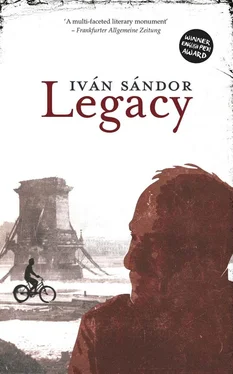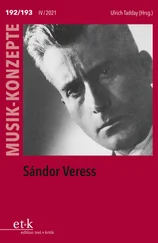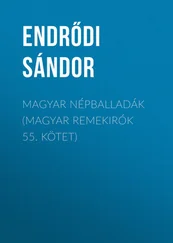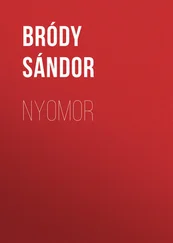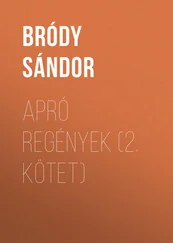Gizi interprets for him. Her voice is sharper than Lutz’s. Lutz is astounded by the ensign’s uncertainty. Gizi says to the ensign that the Herr Consul had told her that a photographic record was being made and if he did not allow people to return to the house they would go straight to the supreme command and show them the photographs, but if people were allowed to go back the Herr Consul was willing to destroy the film on the spot.
The people who had been stood in line returned silently to the house.
Gizi asks Gertrud for the camera, takes the film out and tramples it into the nearest gutter.
The people are directed by the warden.
Charles buttons up his holster.
Gizi tells Lutz that she wants to look for someone and will be back in five minutes. She presses through the crowd of people at the entrance. Gertrud links arms with Lutz.
After ten minutes Lutz goes after Gizi into the house.
On the right is a flight of steps to the upper floors; on the left steps down to the cellar. Children press up to the wall; old people are sitting on the steps. The warden orders everyone to return to where they were before. Those who had found places in the apartments should go back there; those who were in the cellar should return there. Lutz asks him to shout for Gizi. In response to the call others start to cry out other names. The warden attempts to clear a way for Lutz. They reach the first floor. Now Lutz also calls out Gizi’s name and again on the second floor. They go up to the fourth floor and come back down again. Lutz every now and again gazes into a pair of eyes, sometimes strokes a child’s head. They descend into the cellar, with the warden shining a pocket torch. Lutz grasps the stair rail. It is quiet in the cellar, and that helps to gain a sense of the expanse of the space. The silence seems to strike against the walls, to squeeze into the cracks. The cellar must be enormous. He treads on bodies. It crosses his mind that he had had to reach here, the very depths of existence, in order to understand where he had got to. ‘It was as if the darkness had become the face of the world,’ he would write in his diary. ‘At the time I submerged myself into it I would not have been able to define it that way, but now I know that it was the face of the world that was staring at me from that invisibility.’
There are no clouds over Lake Maggiore.
The yellowed leaves of plane trees fall on to the promenade beside the shore of the lake.
Luxury cars roll away from hotel parking lots.
Boats shipping tourists from Italy are putting into Locarno harbour from the south.
It is as if I were watching familiar pictures from travel films. The lake is pristine blue in the sunshine, the woods on the mountainsides emerald green, the peaks snow-white and there are flowerbeds of yellow, pink and lilac in front of the terraces.
Everything is slowed down — steps, the movement of cars, the drifting of boats on the water — as if the second hands on clocks in the windows of the shops in the bazaar were also running more slowly.
At that moment I was sitting in silence with Ágnes Hirschi, Carl Lutz’s stepdaughter, on a terrace of the Muralto Hotel which overlooks the lake. The seats and the tables are white, the tablecloths and chair cushions striped white and blue.
I had received telephone messages in Budapest: there were several on the answering machine, some in foreign languages.
They raise questions, digging into shared locations, shared events.
Z, an editor from Swiss television, turns up at my residence and records a two-hour interview about what I remember of Carl Lutz. I consent to use being made of it only on condition that they do not skip over the parts about the times Swiss diplomacy left him to his own devices and on more than one occasion obstructed him in his work in Budapest and even after the end of the war censured him for overstepping the bounds of his authority.
A few months later I receive an invitation to attend the shooting in Locarno.
I am cited to appear, evidently along with others. I had not prepared for that when I set to work on the book.
I am in luck as I am holding a fresh strand in my hands.
It is well known that private eyes like to keep one step ahead of the official machinery of the police in order to uncover things that might be impeded, or even forbidden, by the ‘higher powers’. In such cases an opportunity may present itself to discover how the barriers are constructed; how false minutes or reports come into existence; and how an investigation can be sidetracked. In such cases the wider context may become clear, and anyone inclined to search for the structure of universal order in individual cases may satisfy his ambition.
Let anyone who wishes to try come forward, a voice prompts me.
Enough of that. As we’ve already said, let us drop questions that relate to time.
I have also suspected all along that I am both following and being followed. Ever since I met Györgyi. This is not hard to spot if one looks back over one’s shoulder at the right moment. More interestingly, I am following myself, the follower.
As if there were more than one me.
Without any of them I am not who I am. I am transformed. In all likelihood I live in the transformations brought about by encounters with the insoluble.
As if my own shadow were able to alter its shape. Sometimes that terrifies me, and the only thing that sets my mind at rest is that I try to follow my own alterations.
So then, who is it who is drinking a coffee now on a terrace of the Muralto Hotel?
From Ágnes Hirschi’s look I see that at first that is precisely what she wishes to know, but since we have been talking for half an hour I start to get the feeling that she is curious about something else. About herself.
What would be the most natural is for me to be grilling her, but she keeps asking more questions. Her mother married Carl Lutz two years after the war was over, while she herself was just six years old in 1944. I had supposed that she knew about everything that I did, but it seems that again I was mistaken. The unfailing curiosity of her gaze betrays that she would like to hear about what was happening around her at the time because a six-year-old girl’s memories are unable to retain it all.
She pulls the sleeves of her black pullover up to her elbows. Her forearms are suntanned — she and her husband go skiing at this time of the year. Her white blouse is open-collared; her auburn hair is flecked with many strands of grey and cropped short like a boy’s.
It is then that I note that Carl Lutz’s chauffeur was called Charles; he had a six-year-old son.
We used to play together a lot.
I think she is telling me that in order to get me to understand the sorts of memories she has mostly retained.
I came across a photograph, I say, of Carl Lutz sitting in a wicker armchair with you on one knee and a little boy on the other. I have that photograph, she says. You know, we used to play together a lot, but I can’t recall the name of Charles’s son.
A hundred people, or maybe more, line up at number 7 Szabadság Square in front of the non-functioning US Embassy building, where at present the Swiss Legation’s Department of Foreign Interests has its offices. After a long wait a woman steps out of the queue; she is around thirty. It is November, it is raining, but she is not wearing a hat. She is strong and is sporting a thickly applied purple lipstick. A policeman standing in the entrance tells her to get back in line. My daughter is a British citizen, she says. We have the right to prompt treatment. She has shoulder-length black hair; her eyes are almond-shaped. She takes out some documents. She is towing a young girl by the hand after her.
Читать дальше
